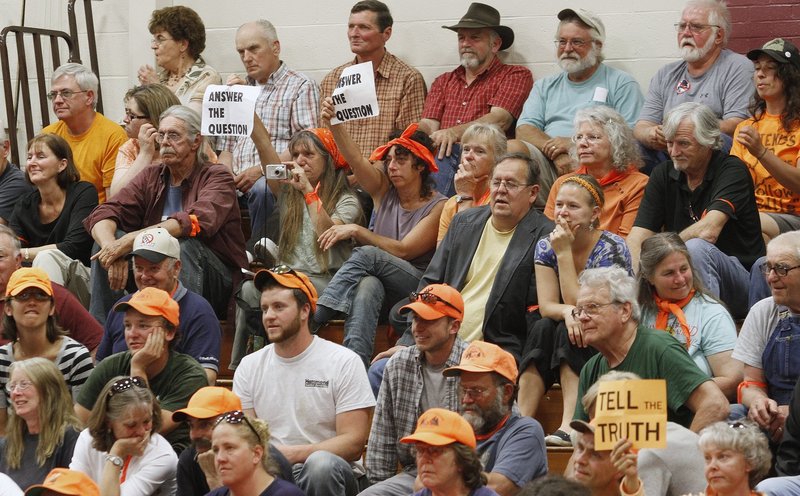Back in 2010, the Legislature created an exemption to the state’s right-to-know law that you could drive a truck through.
Under this exemption, all records of public-private partnerships involving transportation projects of $25 million or more are sealed until the Maine Department of Transportation decides whether to go ahead with or reject a given project.
All submissions and communications are secret. The public can’t find out how it would be affected until late in the process. Even when the public is paying for the work, under this exemption the public has no right to know how its money is being spent.
This exemption is far too broad and should be tightened by the Legislature this year. Lawmakers should do that by passing L.D. 721 and bringing transparency to this type of project.
The weakness of the current law became instantly obvious with the very first project to come along since the law went on the books – the proposed east-west transportation, utilities and communications corridor that the Cianbro Corp. construction company has proposed to cut across the state from Calais to Coburn Gore.
Cianbro President Peter Vigue has publicly said it would be a privately financed project, built on existing rights of way, taking no land through eminent domain. But the public is paying up to $300,000 for a feasibility study. Beyond that, there is no information available.
People have legitimate questions about how this project might affect them. No one knows the proposed route (except its broad outline), and the specifics could affect property and business owners along the way.
The project is supposed to be completely privately financed, but how would that work exactly? What role would the state having in maintaining and policing the new corridor or in connecting it to the rest of the transportation network?
What would happen if the company that owned the corridor went bankrupt? This has happened in other states when public-private partnerships were used to build roads and the state was left holding the bag.
Although it has been stated that no public money would be needed for the east-west corridor, the public is already spending $300,000 for a study at a time when it is cutting key services elsewhere.
There may be simple answers to all of these concerns, but secrecy is a surefire way to destroy public trust.
A narrowly defined exception that would protect trade secrets and the company’s competitive position could be crafted to permit the kind of public oversight that would ease these concerns.
The Legislature ought to tighten up this exemption to the right-to-know law to make sure important projects have public involvement every step of the way.
Send questions/comments to the editors.



Success. Please wait for the page to reload. If the page does not reload within 5 seconds, please refresh the page.
Enter your email and password to access comments.
Hi, to comment on stories you must . This profile is in addition to your subscription and website login.
Already have a commenting profile? .
Invalid username/password.
Please check your email to confirm and complete your registration.
Only subscribers are eligible to post comments. Please subscribe or login first for digital access. Here’s why.
Use the form below to reset your password. When you've submitted your account email, we will send an email with a reset code.